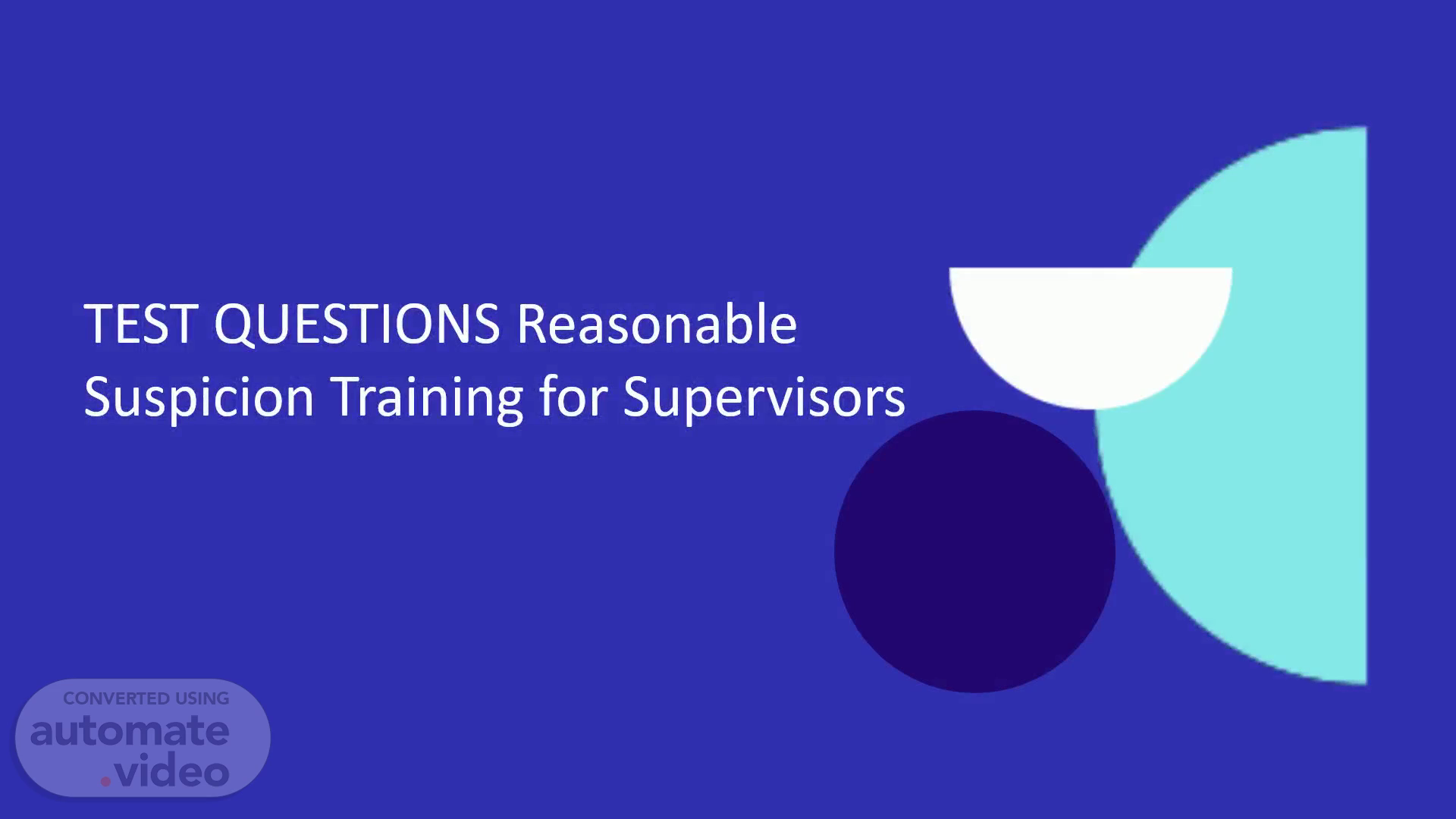
Storyboard Brainstorm Presentation
Scene 1 (0s)
[Audio] Test questions reasonable suspicion training for supervisors.
Scene 2 (7s)
Reasonable Suspicion: Helping Managers Fight Workplace Substance.
Scene 3 (27s)
[Audio] TRUE Reasonable suspicion testing for substance abuse in the workplace has been upheld by the courts, but it is still necessary to have appropriate documentation that supports the request for the test. Additionally, the employee will be strongly inclined to argue against the facts as the supervisor recalls them, if the supervisor does not have proper documentation.
Scene 4 (1m 4s)
[Audio] TRUE This is an example of documentation that is specific and clear. There are no subjective or opinionated comments or conclusions about the employee's condition. It is written in a factual, unemotional way, with attention to that which can be sensed- in this case what can be seen, heard, and smelled..
Scene 5 (1m 26s)
[Audio] TRUE This documentation lacks specific details and instead appears to be conjecture; it would be difficult to defend. It would not support a disciplinary action or a reasonable suspicion drug test..
Scene 6 (1m 42s)
[Audio] TRUE Employees who have drug- and alcohol-related problems are at higher risk of injury in the workplace. Accidents occur at three times the rate of employees who do not abuse substances; workers compensation claims are five times as high as for non-abusing employees..
Scene 7 (2m 3s)
[Audio] TRUE If the supervisor notices deteriorating changes in behavior, work habits, or conduct on the job, it's possible that the employee is struggling with a drug or alcohol addiction problem. You should not diagnose from limited information, but you should refer your employee to the EAP or other workplace counseling support. This may lead to treatment if the employee chooses to take advantage of it. It just may save a life..
Scene 8 (2m 32s)
[Audio] TRUE For most people, alcohol detoxifies and exits the body at a consistent rate meaning a short amount of time can cause a significant drop to occur in the blood alcohol level. Time is of the essence when trying to arrange a reasonable suspicion test..
Scene 9 (2m 50s)
[Audio] TRUE They also experience a higher rate of absenteeism, property damage, theft, low morale, workers compensation claims, and more. Employees may use drugs or alcohol on the job and never be caught. However, usually alcohol and drug use patterns of addiction become detectable. Performance-quality of work, attendance, conduct, attitude, and availability-are eventually affected..
Scene 10 (3m 20s)
[Audio] FALSE The supervisor should follow the organization's policy and procedures if an employee refuses to submit to a reasonable suspicion drug test. Most drug and alcohol policies subject employees to termination if they refuse a test. Do not force an employee to cooperate. This can lead to many undesirable consequences for the supervisor, the employee, and the organization..
Scene 11 (3m 48s)
[Audio] FALSE The supervisor should never ask an employee personal questions or discuss his or her personal problems. Such discussions usually lead to statements from employees that elicit sympathy from the supervisor. The result is postponing referral to testing or eliciting from the employee promises he or she will not keep about getting help. It is tempting to ask employees personal questions or hope they share personal information that will give the supervisor a better understanding of their problems, but such inquiries usually lead to enabling-not genuine help for the employee..
Scene 12 (4m 26s)
[Audio] FALSE If you suspect an employee is using drugs or alcohol on the job, the supervisor should act in accordance with the organization's policy and procedures. Supervisory use of such a device would be a violation of the organization's policy and most drug-testing rules..